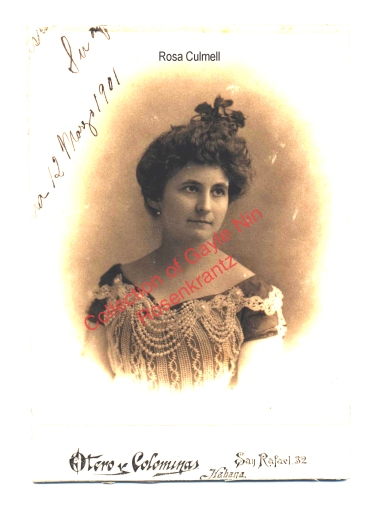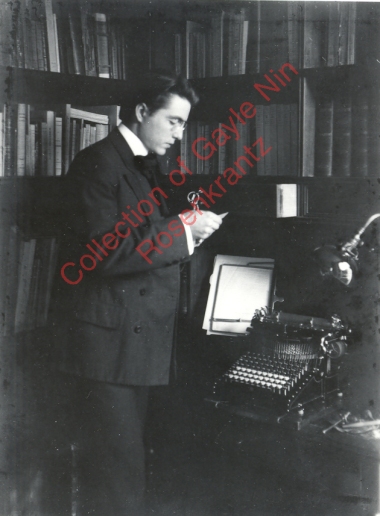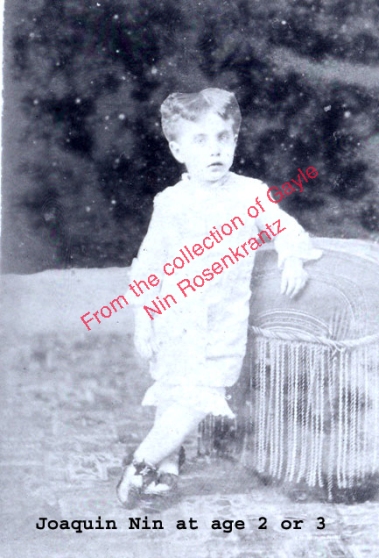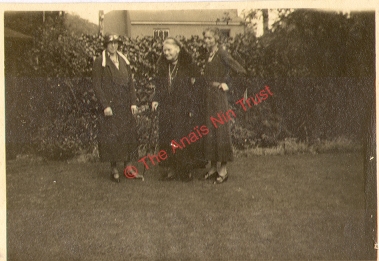
Rosa Culmell, 1901

- Joaquin Nin as a young man
When Rosa Culmell, 30, met Joaquín Nin, 22, in Havana, Cuba, she was swept off her feet by his beauty, talent, charm, and eloquent manners. He had a habit of dazzling women by playing piano for customers in music stores, and Rosa, although defiantly single and of the elite class, was caught in his spell. Joaquín, who was penniless and living off his meager earnings and his Cuban relatives, felt Rosa was the perfect vehicle for his success in living the life of a dandy and in his professional career. Rosa, though not the most beautiful of her single sisters, was the most mature and forthright, not to mention she had a professional-quality singing voice. Joaquín and Rosa married April 8, 1902 in Havana, and soon left for Paris with enough money for a grand piano and a monthly stipend, thanks to Rosa’s father, Thorvald Culmell.
Once in Paris, the couple soon discovered their immense differences: she was honest, loving, and giving. He was selfish, arrogant, and wanted nothing but the best for himself. She provided the money, but he made the decisions. Their relationship became a series of monumental battles followed by passionate reconciliations, according to Anaïs Nin biographer Dierdre Bair.
Rosa became pregnant almost immediately after the marriage, perhaps the result of one of their clashes. Although Rosa had won a battle to live in St-Germain-des-Prés, which was relatively inexpensive, shortly before their first child, Anaïs, was born, Joaquín precipitated the move to Neuilly-sur-Seine, Paris’s most luxurious suburb, setting an ominous pattern for the rest of their marriage.
 Here are some details about Anaïs Nin’s Spanish and Cuban relatives. Again, many thanks to Gayle Nin Rosenkrantz, who has cleared up some misinformation and supplied the photo.
Here are some details about Anaïs Nin’s Spanish and Cuban relatives. Again, many thanks to Gayle Nin Rosenkrantz, who has cleared up some misinformation and supplied the photo.